Are the Swiss prepared for driverless cars?
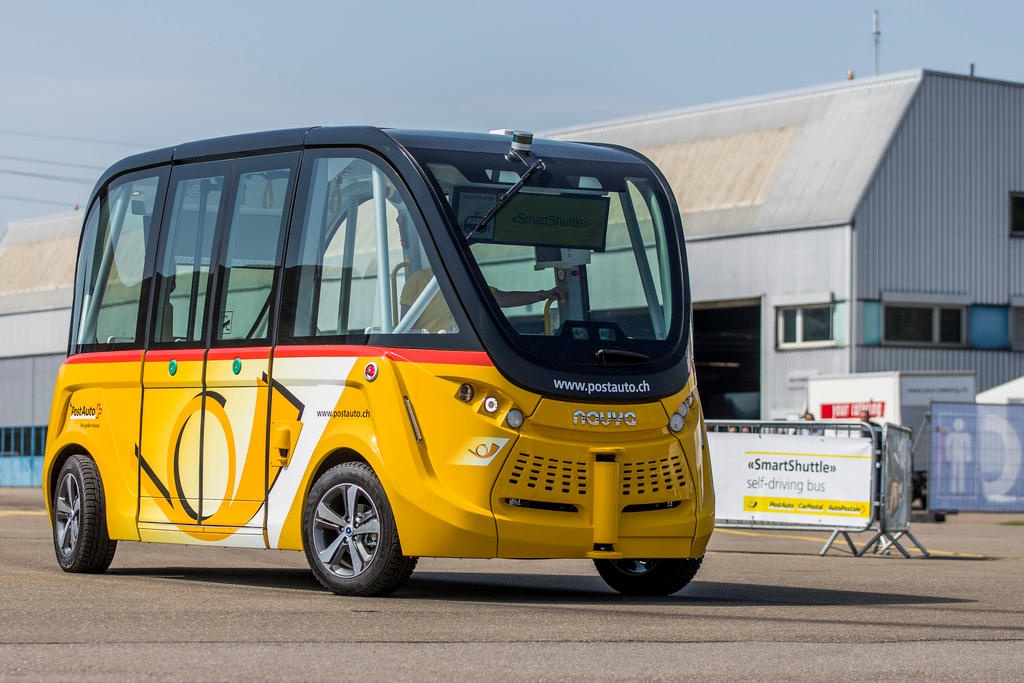
The idea that one day autonomous cars could be whizzing along Swiss streets makes many Swiss uneasy, a study has found. That said, the elderly and people who do work on public transport express an interest in the concept.
“Use of Automated VehiclesExternal link in Everyday Life – Potential Applications and Effects in Switzerland” is the first study to examine the attitude of the population towards such futuristic means of mobility. A total of 653 households in French- and German-speaking Switzerland were questioned, the Swiss Telecommunication Association, which commissioned the study, said on Wednesday.
Automated cars (where the driver can intervene if necessary) enjoy wide acceptance among the Swiss public, the study found. However, only a quarter of respondents thought autonomous vehicles (which don’t need a driver) made sense, although this figure is still an increase on previous years.
Elderly people – who would remain mobile – could benefit most from autonomous cars, respondents said. However, almost seven out of ten people reckoned such cars would result in additional traffic and congestion, since the vehicles could for example drop a person off at a station and then return home empty.
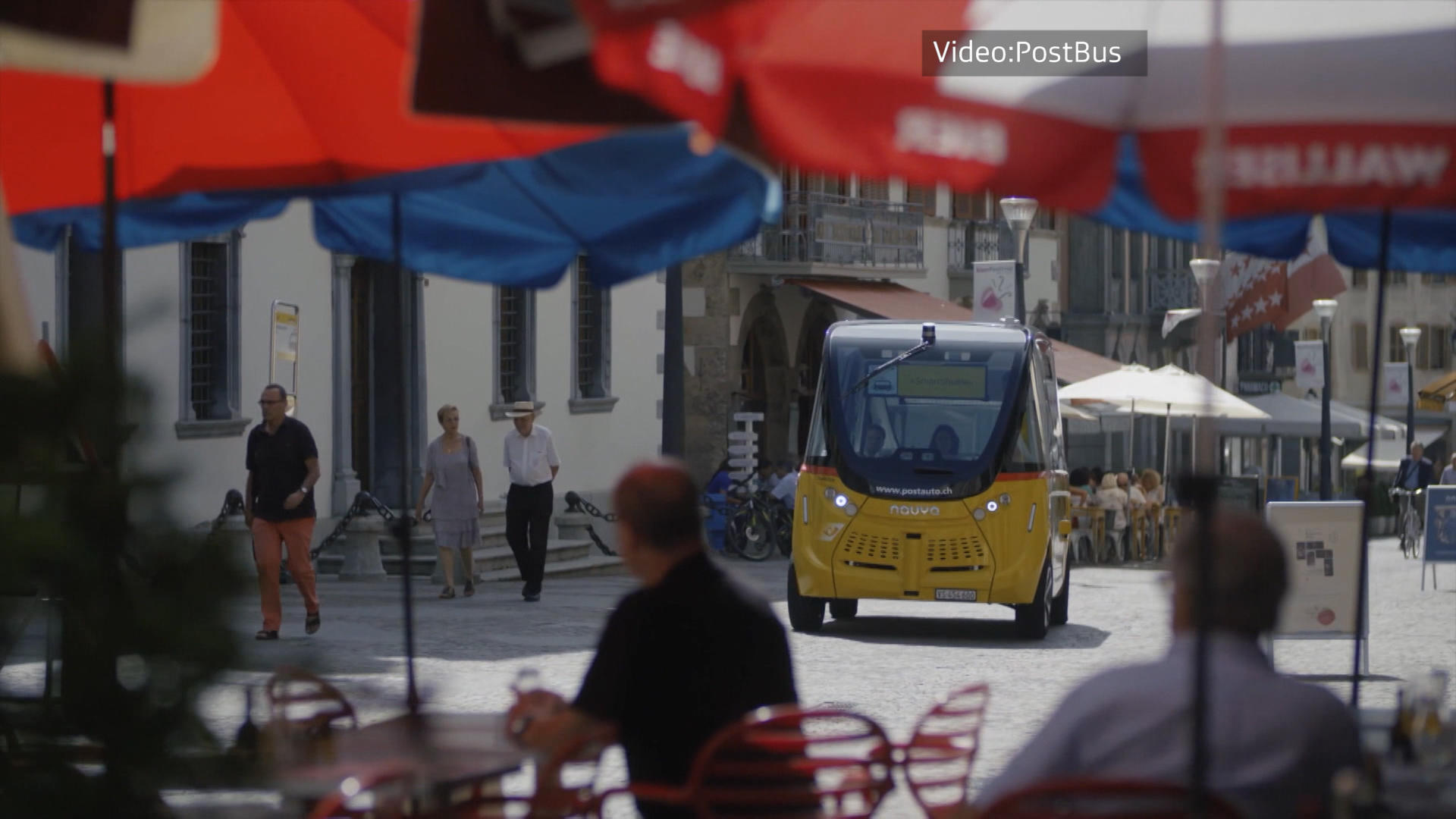
More
Self-driving buses gain high user acceptance in pilot
On the other hand, 56% of respondents thought automated cars could optimise traffic management and thus reduce jams.
Pioneering role
Consultants EBP Switzerland, which carried out the study, said automated driving “introduces numerous opportunities for cities and cantons, including the more efficient use of available parking spaces, better use of road capacity, enhanced traffic control, platforms for combining various public and private transportation services and improved access to transportation networks and destinations”.
It said the challenges could include issues relating to “digital infrastructure, road-space design, traffic flow, changes to existing legal frameworks, enhanced driving performance and transportation-system management”.
The authors concluded that Switzerland could play a pioneering role in the management of automated vehicles and public transportation.
“In particular, automated driving can be expected to introduce new opportunities in the area of local, road-based public transportation solutions. And in the long term, there may be new ways of better aligning transportation options to customer demands and eliminating existing hubs in favour of streamlined solutions,” they wrote.
World first
Switzerland already has experience of driverless vehicles. In October, the Swiss city of Sion said it planned to expand its pioneering autonomous bus service, doubling the length of its route to the train station and extending the offer to the end of 2018.
The Federal Road Office gave the capital of canton Valais and PostBus, a subsidiary of the state-owned Swiss Post, the green light to extend their free autonomous bus pilot project from the Old Town to the main train station.
Currently, their two bright-yellow driverless buses carry up to 11 passengers along a 1.5-kilometre route through the Old Town as part of an initiative launched in December 2015. The vehicle was the first of its kind in Switzerland and one of the first in the world to transport passengers using robotic technology instead of a driver.
To date, more than 60,000 people have used one of the driverless buses. In September 2016, however, the service was suspended after a bus crashed into a delivery van; no one was injured.
The Swiss transport ministry is meanwhile preparing proposals for a possible legal amendment to pave the way for the regular use of driverless vehicles on Swiss roads.

In compliance with the JTI standards
More: SWI swissinfo.ch certified by the Journalism Trust Initiative









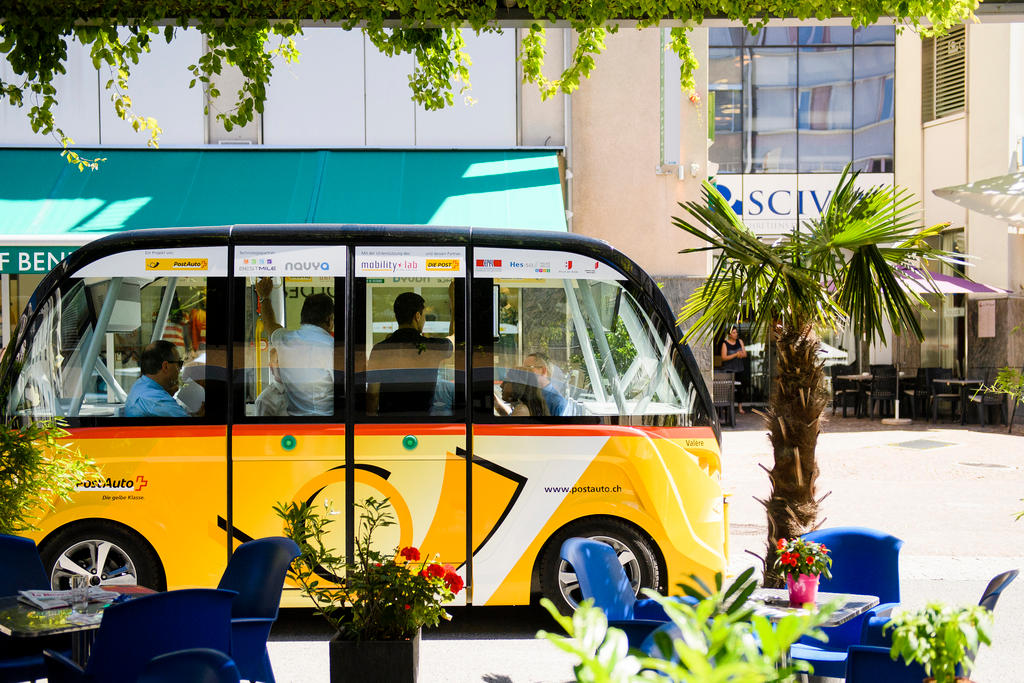
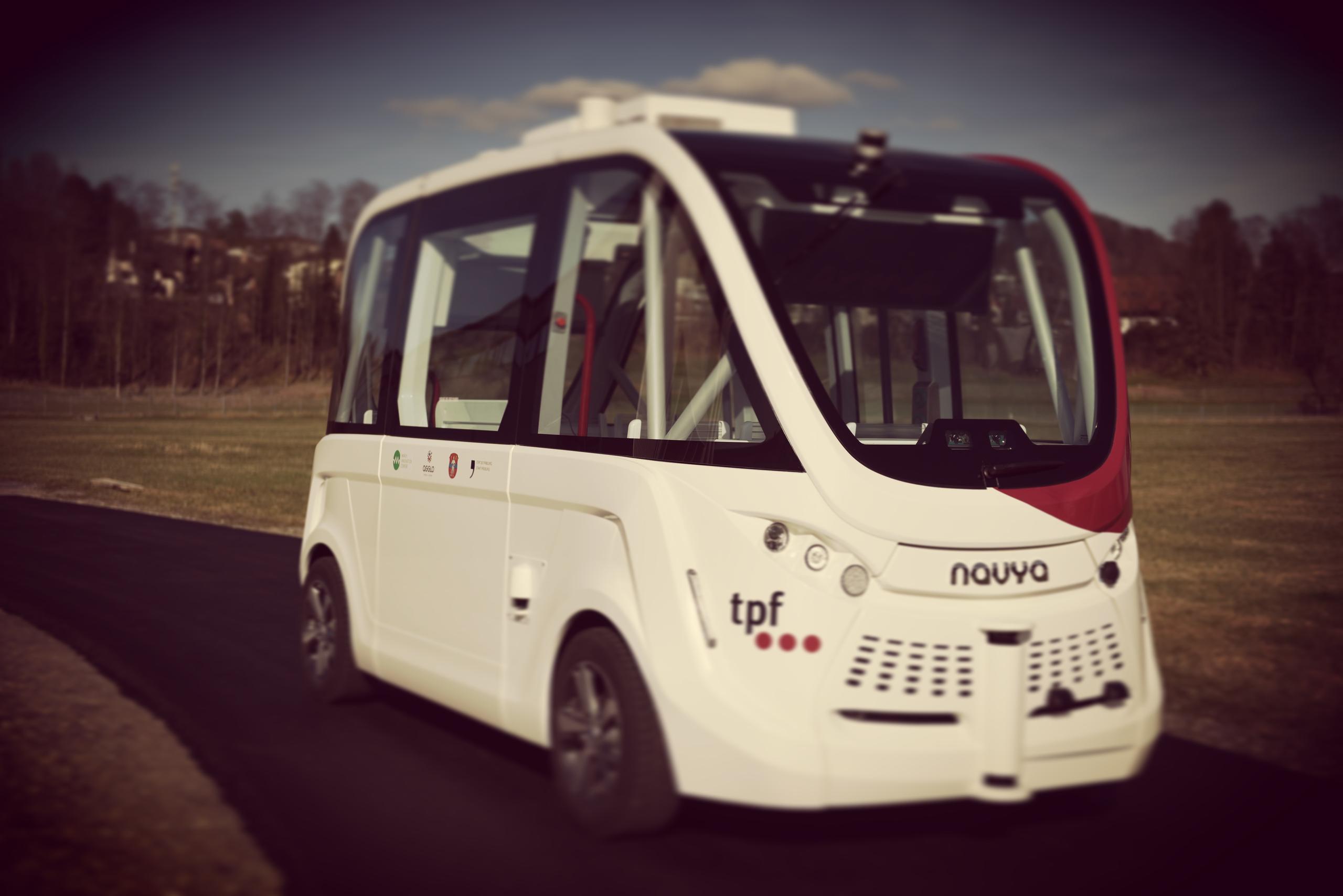
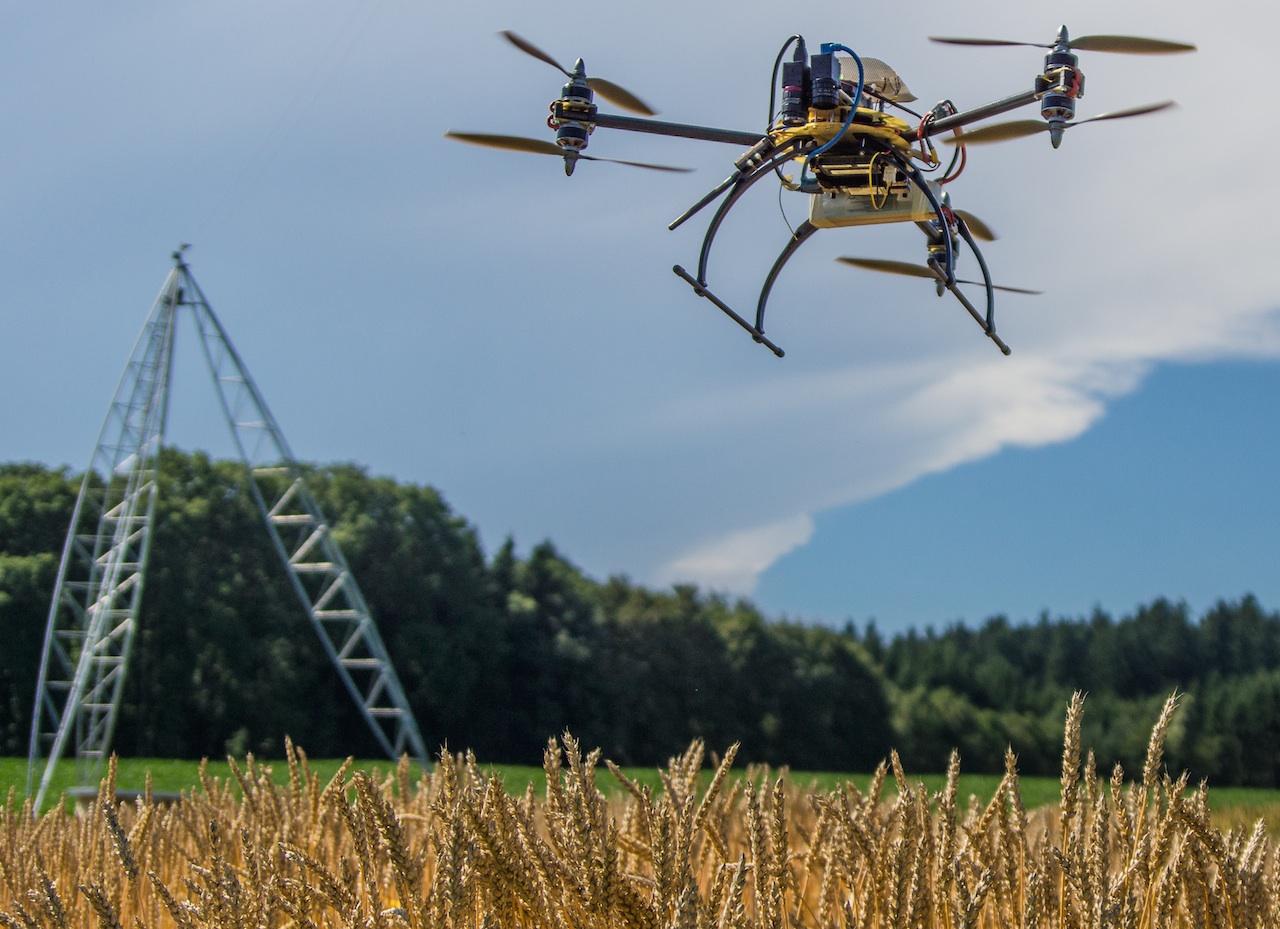
You can find an overview of ongoing debates with our journalists here . Please join us!
If you want to start a conversation about a topic raised in this article or want to report factual errors, email us at english@swissinfo.ch.